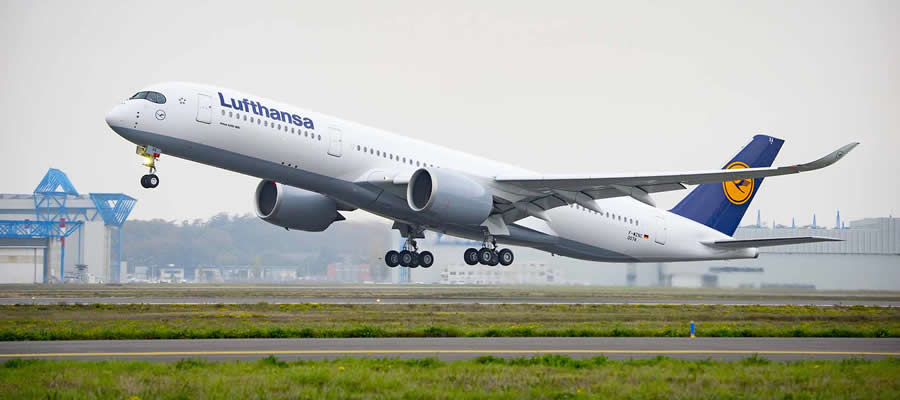Lufthansa Group has reported an operating profit of €1.3 billion for the third quarter following a strong summer travel season. Revenue was the “strongest in the company’s history” at €10.7bn up 5% over the prior-year period, which Lufthansa said was lifted by the higher number of flights and the revenue growth at Lufthansa Technik. The company’s operating margin was 12.5% down from 14.3% a year ago because of “significant cost increases, particularly in fees, MRO expenses and personnel”. Net profit fell to €1.1 billion, down from €1.2 billion in the same period last year.
“Today, we are reporting on another strong summer travel season, with a record seat load factor of 88 percent in August,” said Carsten Spohr, Chairman of the Executive Board and CEO of Deutsche Lufthansa. “Global demand remains intact and bookings for the fourth quarter are also at a high level compared to the previous year, particularly in the premium classes.”
Spohr noted that all passenger airlines were operating at a profit, with Eurowings, Austrian Airlines and Brussels Airlines even generating “record results” in the third quarter. Lufthansa Technik and Lufthansa Cargo also remain “on track”.
However, Spohr did refer to the impact of delayed aircraft deliveries, punctuality issues at hubs in Germany and regulatory disadvantages, which he said are “impacting our core brand”. In response, Lufthansa Airlines has launched the “Turnaround” program to address these and structural internal challenges. The program aims to increase efficiency, reduce complexity and improve product quality, and envisages shifting more short-haul traffic to more cost-efficient flight operations. By 2026, the measures will have a gross EBIT effect of around €1.5 billion, maintains Lufthansa.
Lufthansa is continuing to invest in its fleet modernization, enhancing premium offering and enhancing its international positioning. He calls these the “three central pillars” of the airline’s strategy that he says will enable the company to “further expand our role as the leading airline group in Europe”.
The Lufthansa Group airlines carried more than 40 million guests in the third quarter, an increase of 6% over the previous year. At 94% of available capacity (prior-year period: 88%), the seat load factor rose to 87% in the third quarter (previous year: 86%).
Due to the industry-wide capacity growth, Lufthansa Group reported a fall of 3.5% to average yields compared to the previous year. Overall, the Group's passenger airlines generated an Adjusted EBIT of €1.2 billion in the third quarter, down on the previous year’s result of €1.4 billion. The decline in the operating profit of the passenger airlines, Lufthansa said, has been mainly driven by the €234 million decline in the result of Lufthansa Airlines. “Delays in the delivery of new aircraft and the associated need to continue operating older aircraft, increased location costs, higher staff costs and expenses for compensation payments following flight irregularities had an above-average impact on the result of Lufthansa Airlines”, said the company.
Till Streichert, Chief Financial Officer of Deutsche Lufthansa, said: “The Lufthansa Group will continue to focus on generating cash flow and creating value for our shareholders. For this, the Turnaround program at Lufthansa Airlines and the fleet modernization are core elements. I am confident that on this basis we will position all our passenger airlines to be sustainably efficient and profitable.”
The Lufthansa Group generated an operating cash flow of €635 million in the third quarter of 2020 (previous year: €1.2 billion). After deducting net capital expenditure, primarily for new fuel-efficient aircraft, the Group recorded an Adjusted free cash flow of €128 million in the quarter.
New debt for the group is at €5.1 billion, with available liquidity up by around €1 billion to €11.4 billion.
Lufthansa Group expects demand for air travel to remain strong in the remaining months of the year. The company further confirmed that load factors booked for November and December “are well above the levels observed at the same time last year”, with demand remaining “particularly high in the premium classes”.
The Lufthansa Group plans to increase its capacity in the fourth quarter up to around 91% compared to the pre-crisis level. The Group also expects to report a positive operating result in the fourth quarter, expecting to achieve an Adjusted EBIT of €1.4 to €1.8 billion for the full year.

